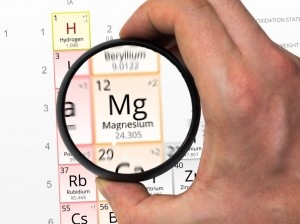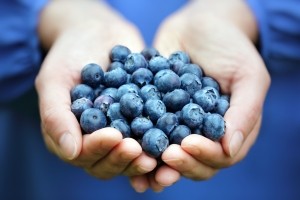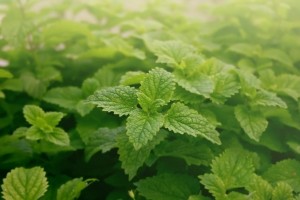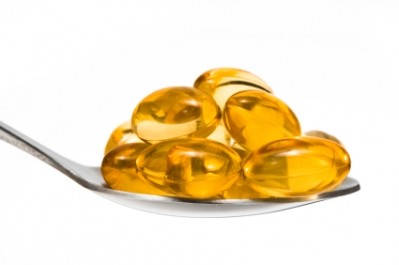The top ingredients for cognition, focus & mood

1. Omega-3 & cognitive function
The data linking marine omega-3 fatty acids and cognitive function has not always been consistent in this area, with experts noting that some studies have been performed in diseased patients (for example, Alzheimer’s disease) or have used insufficient doses.
Despite these limitations, many clinical trials have shown clear benefits to cognitive health, with a 2015 meta-analysis of randomized, controlled trials showing that daily DHA doses over 1 gram were required to improve some aspects of cognitive function in older adults (PLoS One).
A key area for many is the role of omega-3 fatty acids in the healthy development of a fetus during pregnancy.
A study from Canada, for example, reported that an increased intake of the omega-3 DHA during pregnancy could produce improved motor function in the offspring in later life (The Journal of Pediatrics).
Results of a meta-analysis of 15 gold standard randomized controlled trials presented at the Experimental Biology 2016 event in San Diego, CA by scientists from Tufts University and Harvard indicated that EPA+DHA supplementation during pregnancy or infancy was associated with improved motor skills in the children (The FASEB Journal).
2. Omega-3 & mood and behavior
Linked to cognitive performance are reports that supplements of the fatty acids may improve mood and behavior. Several studies have reported that supplementation with EPA and DHA may result in improvements in behavior and learning of children, although such studies have their critics.
In terms of mood, several studies, such as the French study published in the American Journal of Clinical Nutrition, have reported benefits for EPA and symptoms of depression.
Researchers have also reported a potential role for EPA in lowering the severity of symptoms of post-traumatic stress disorder (PTSD). According to data published in the Journal of Affective Disorders, increased levels of EPA+DHA (docosahexaenoic acid), EPA only, and the ratio of EPA to the omega-6 arachidonic acid (AA) were all associated with low PTSD severity symptoms in patients receiving omega-3 supplements at 3 months.
Such findings are of obvious interest to the current and former members of the armed forces. Indeed, military interest in omega-3 is nothing new, with the November 2014 edition of Military Medicine focusing on the fatty acids as “nutritional armor”.
Interest has focused on several different endpoints, including improving mood and reducing suicide rates among serving and ex-military personnel, speeding recovery from traumatic brain injury, and improving reaction times of fighter pilots.
3. PhosphatidylSerine (PS)
Following on from the omega-3s, there’s a good deal of evidence to support the role of PhosphatidylSerine (PS) during early brain development, and the lack of it during mental deterioration.
PS is a naturally occurring phospholipid found in organs with high metabolic activity, such as the brain, lungs, heart, liver and skeletal muscle. The nutrient has a variety of unique regulatory and structural functions, including modulating the activity of receptors, enzymes, ion channels and signaling molecules.
In the US, the FDA permits a qualified health claim for PS relating to benefitting dementia/cognitive dysfuntion in the elderly, but with the qualification: “Very limited and preliminary scientific research suggests that phosphatidylserine may reduce the risk of dementia/cognitive dysfuntion in the elderly. FDA concludes that there is little scientific evidence supporting this claim.”
4. B-vitamins
The potential role of B-vitamins to support brain health is based on its ability to reduce levels of homocysteine, an amino acid linked to wasting in the brain, or atrophy.
Previously, epidemiological studies have reported that high levels of homocysteine are associated with suspected or confirmed dementia. Indeed, the Framingham study reported that people with homocysteine levels above 14 micromoles per liter of serum had twice the risk of dementia.
The epidemiological studies have been followed by clinical trials, which have yielded conflicting or disappaointing results.
On a positive note, data from the Vitacog study published in the International Journal of Geriatric Psychiatry indicated that participants receiving a B vitamin supplement providing 0.8 mg per day of folic acid, 0.5 mg of vitamin B12, and 20 mg of vitamin B6 for two years had 30% lower homocysteine levels, compared with placebo. In addition, executive mental function was stabilized in the B vitamin group, compared with placebo.
5. Vitamin E
Over 90% of Americans are reportedly not consuming the RDA for vitamin E, with most eating less than half of the RDA. The potential brain health benefits of vitamin E are linked predominantly to its antioxidant effects, which play a key role protecting membranes for oxidation, and omega-3 fatty acids from peroxidation.
Data from the Karolinska Institutet in Stockholm, Sweden has indicated that all vitamin E forms (tocopherols and tocotrienols) may play a role in brain health.
A paper published in the Neurobiology of Aging found that the risk of mild cognitive impairment (MCI) was 15% and 8% lower in people with the highest levels of tocopherols and tocotrienols, respectively.
In addition, data from the Canadian Study of Health and Aging indicated that supplements of vitamin E and C may reduce the risk of cognitive decline in people over 65. The results, published in the Annals of Pharmacotherapy, showed that users of vitamin C and/or E supplements had a 23% reduced risk cognitive impairment, not dementia (CIND), Alzheimer’s disease (AD), or all-cause dementia.
“Overall, these findings indicate additional support for the use of antioxidants as a preventive strategy against cognitive decline. Supplements of vitamins C and E are generally safe, inexpensive, and may provide a number of health benefits,” wrote the researchers.
6. Lutein
With the eyes and brain so closely connected, it comes as no surprise that lutein is emerging as a key ingredient in cognitive health.
Recent findings from pediatric brain tissue studies have shown that about 60% of the total carotenoids in the pediatric brain tissue is lutein, and yet NHANES data show that lutein is only about 12% of the carotenoids in the diets, so there is a preference for lutein in the brain (Vishwanathan et al. J Pediatr Gastroenterol Nutr. 2014).
The mechanism of action for lutein is probably more than its action as an antioxidant, since there is a lot more alpha-tocopherol (vitamin E) in the brain than lutein, but no link between alpha-tocopherol and cognitive function.
A recent paper by scientists from Queens University Belfast, The Irish Longitudinal Study on Ageing, and scientists from the Macular Pigment Research Group at the Waterford Institute of Technology linked higher blood levels of lutein and zeaxanthin to better cognition, memory, and executive function (Journal of Gerontology, Series A).
Prof John Nolan, co-author on the paper, told NutraIngredients-USA: "This work is very important as it adds to recent findings that show a link between the macular carotenoids and cognitive function. In this study, we confirm that plasma lutein and zeaxanthin were independently associated with better composite scores across the domains of global cognition, memory, and executive function.”
7. Citicoline
One of the most recognizable branded ingredients for brain health is Kyowa Hakko’s Cognizin-branded citicoline ingredient: A recent study using Cognizin found that 28 days of supplementation with either 250 mg or 500 mg Cognizin per day produced significant improvements in motor speed, attention and impulsivity, compared with the placebo (Journal of Attention Disorders).
The ingredient is used in the Nawgan, a brain health product formulated by Rob Paul, PhD, and available in numerous retail outlets. A 2014 study with the product found that it boosted attention and alertness in young adults.
Commenting on the study in 2014, Dr Paul, said he was not surprised by the findings, but still “thrilled with this further evidence in support of Nawgan.
“Our goal in developing Nawgan was to apply the very best science and offer consumers a highly functional beverage that was also great tasting and very healthy,” he added.
8. Magnesium
Magnesium, which is necessary for more than 300 biochemical reactions in the body, has been the focus of interest in the brain health sector. The charge into the brain health realm is being led by the magnesium L-threonate ingredient branded Magtein by Magceutics. The ingredient is distributed by AIDP.
With between 70 and 80% of the US population not meeting their recommended intakes of magnesium, consumers – and the health care professionals who advise them - are waking up to the importance of the mineral.
Data from animal studies supports the suggests that Magtein may enhance many areas of the memory related brain functions (for example, Pharmacology Biochemistry and Behavior, 2013, Vol. 106, Pages 16-26).
9. L-theanine
Unilever has been leading research into this compound in tea. L-theanine, an amino acid found in tea leaves, is thought to help reduce stress, promote relaxation and improve the quality of sleep.
A 2013 review by Suzanne Einother and Vanessa Martens from Unilever Research and Development, Vlaardingen in the Netherlands concluded that the evidence from randomized control trials supports a role for L-theanine and caffeine to benefit mood and performance.
However, the European Food Safety Authority (EFSA) has rejected both article 13.1 and 13.5 (submitted by Unilever) health claims petitions linking black tea consumption and improved mental focus.
10. Curcumin
Curcumin – the natural pigment that gives the spice turmeric (Curcuma longa) its yellow color – has been gaining attention for its potential brain health benefits.
There are many animal studies exploring the potential of curcumin to improve cognitive function, but human intervention studies are more limited in number.
A 2014 study using the Longvida ingredient found that curcumin may boost working memory and mood in healthy older adults (Journal of Psychopharmacology).
11. Resveratrol
Resveratrol, a powerful polyphenol and anti-fungal chemical, is often touted as the bioactive compound in grapes and red wine, and has particularly been associated with the so-called 'French Paradox'.
While many research dollars have been spent exploring the potential cardiovascular benefits of the polyphenol, some evidence supports a potential role for the ingredient in brain health.
A 2010 paper published in the American Journal of Clinical Nutrition from UK-based scientists reported that a single dose of 250 or 500 milligrams of resveratrol may boost blood flow in the brain but did not affect cognitive performance.
A study by scientists from the Max Planck Institute for Human Cognitive and Brain Sciences in Germany reported that 26 weeks of resveratrol supplements at a dose of 200 mg per day was associated with improved memory performance and glucose metabolism in older adults (J Neurosci. 2014).
A recent paper from scientists at the University of Newcastle in Australia found that a daily 150 mg dose of resveratrol (ResVida, DSM) enhanced both, “cerebrovascular function and cognition in post-menopausal women, potentially reducing their heightened risk of accelerated cognitive decline and offering a promising therapeutic treatment for menopause-related cognitive decline” (Nutrients).
12. Blueberry anthocyanins
Media coverage of the potential brain benefits of blueberries have been cited by some as leading a boom in blueberry sales in various markets. The beneficial effects of the blueberries are thought to be linked to their flavonoid content - in particular anthocyanins and flavanols. The exact way in which flavonoids affect the brain are unknown, but they have previously been shown to cross the blood brain barrier after dietary intake.
A small 2010 study led by Robert Krikorian from the University of Cincinnati Academic Health Center found that a daily drink of about 500 mL of blueberry juice was associated with improved learning and word list recall, as well as a suggestion of reduced depressive symptoms in older people with early memory problems (Journal of Agricultural and Food Chemistry).
A 2017 paper by researchers from the University of Reading, UK, reported that consumption of a blueberry beverage was associated with improvements in mood in children (Nutrients).
Another study by scientists from Exeter University, UK reported that blueberry concentrate may increase activity in select regions of the brain, and boost working memory in older adults (approximately 68 years of age), compared to placebo (Applied Physiology, Nutrition, and Metabolism).
13. Inositol-stabilized arginine silicate
Nutrition 21’s Nitrosigine-branded ingredient has been gaining a lot of attention in sports nutrition circles, but the ingredient also has potential in the cognitive health sector. Data from two double-blind placebo-controlled crossover studies published last year found that dietary supplements of Nitrosigine may boost cognitive performance in tests requiring mental flexibility, processing speed and executive functioning (Nutrients).
“Enhanced mental flexibility has been shown to benefit athletes when faced with quick decisions and associated adaptations often required during competition, especially in field sports such as football (American soccer),” wrote the authors. “In addition, the ability to efficiently allocate attention is an important factor for success in all sports. The ability to multitask may help an athlete save energy through more efficient processing, thus also allowing them to perform better than before.
“Therefore, the improvements in complex processing speed with [Nitrosigine] supplementation reported in this study, as measured by TMT B, suggest benefit as a cognitive enhancing nutritional ingredient with specific applications in sports, competitions, and other athletic activities.”
14. Spearmint extract
Another branded ingredient attracting attention in cognitive health is Kemin’s Neumentix which is a polyphenol-rich derivative of clonal lines of spearmint. The natural spearmint extract contains 14.5% rosmarinic acid and 24% total phenolic content. The ingredient is positioned for cognitive health and its efficacy is supported by data published in peer-review journals.
A recent study, presented at the recent International Society of Sports Nutrition annual conference in Phoenix, indicated that 90 days of supplementation with 900 mg per day of Neumentix was associated with significant improvements in results obtained with the Makoto Arena, a unique tool that measures reaction time to stimuli, mental focus and hand-eye, foot-eye coordination.
Data from a double-blind, placebo-controlled, parallel study with 142 recreationally-active men and women indicated that those supplemented with Neumentix showed improved reaction time after seven days, and improved focus and agility after 30 days, compared to placebo.
15. Ashwaganda
Ashwagandha, a flagship Ayuervedic herb, has been gaining traction in the mainstream US market with consumers embracing its wide-ranging body of health benefits.
Data published earlier this year in the Journal of Dietary Supplements indicated that adults supplemented with ashwagandha root extract (KSM-66, Ixoreal) had improved memory test scores.
The researchers conducted what they claimed to be the first trial that looked at “the clinical impact of ashwagandha on the cognitive deficits seen in mild cognitive impairment”. The prospective, randomized, double-blind, placebo-controlled study was performed with 50 adults.
“Ashwagandha may be effective in enhancing both immediate and general memory in people with [mild cognitive impairment] as well as improving executive function, attention, and information processing speed,” wrote the scientists.
16. Bacopa
Another Ayurvedic herb with cognitive health activity is Bacopa (Bacopa monnieri, Plantaginaceae), a perennial medicinal plant native.
A meta-analysis by scientists from Naresuan University (Thailand) and the University of Illinois at Chicago (USA) concluded: “This meta-analysis suggests that Bacopa monnieri has the potential to improve cognition, particularly speed of attention but only a large well designed 'head-to-head' trial against an existing medication will provide definitive data on its efficacy on healthy or dementia patients using a standardized preparation.” (Journal of Ethnopharmacology)
A systematic review published in December 2016 in Complementary Therapies in Medicine concluded: “This review highlights the safe use of Bacopa monnieri in child and adolescent populations for improving elements of cognition as well as behavior and attention-deficit domains.”
17. Teacrine
Compound Solutions’ TeaCrine has also been attracting attention from dietary supplement manufacturers. The ingredient is a nature-identical version of theacrine, which can be found in kucha tea leaves (camellia assasamica). It is an alkaloid with a similar structure to caffeine, and reportedly promotes energy in the body.
The product is supported by a couple of clinical trials: Preliminary acute data published in the Journal of the International Society of Sports Nutrition support the potential of the ingredient to improve subjective “energy” levels as well as indices of mental performance.
Additional data from a small, open-label study and a small randomized, placebo-controlled double-blind study, published last year in the Journal of Dietary Supplements, reported that a daily 200 mg dose improved concentration, energy and mood.
18. Gut-brain axis
Finally, a lot of attention is focusing on the power of the gut microbiota to influence cognitive performance via the gut-brain axis, that bidirectional interaction between the gastrointestinal tract and the nervous system.
An increasing number of studies in animals have reported that that modification of the gut microbiome via probiotics and prebiotics or antibiotics can result in changes in behavior and cognitive function.
Translation to human has not always been straightforward, however. Speaking at the recent 2017 meeting of the International Scientific Association for Probiotics and Prebiotics (ISAPP), Ted Dinan, MD, PhD, from the APC Microbiome Institute and Department of Psychiatry at University College Cork, described how promising data from animal studies using Lactobacillus rhamnosus (JB-1) failed to translate into human data (Brain, Behavior, and Immunity).
However, positive findings with Bifidobacterium longum 1714 did translate and were found to reduce stress and improve memory in healthy humans (Translational Psychiatry).
Other studies have reported that Lactobacillus rhamnosus R0011 and Lactobacillus helveticus R0052 (Lallemand Health Solutions) may impact generational stress (Psychological Science).
Editor's Note: This list is not intended to be an exhaustive review of all cognitive health ingredients but to give the reader a flavor of the options in the marketplace


























